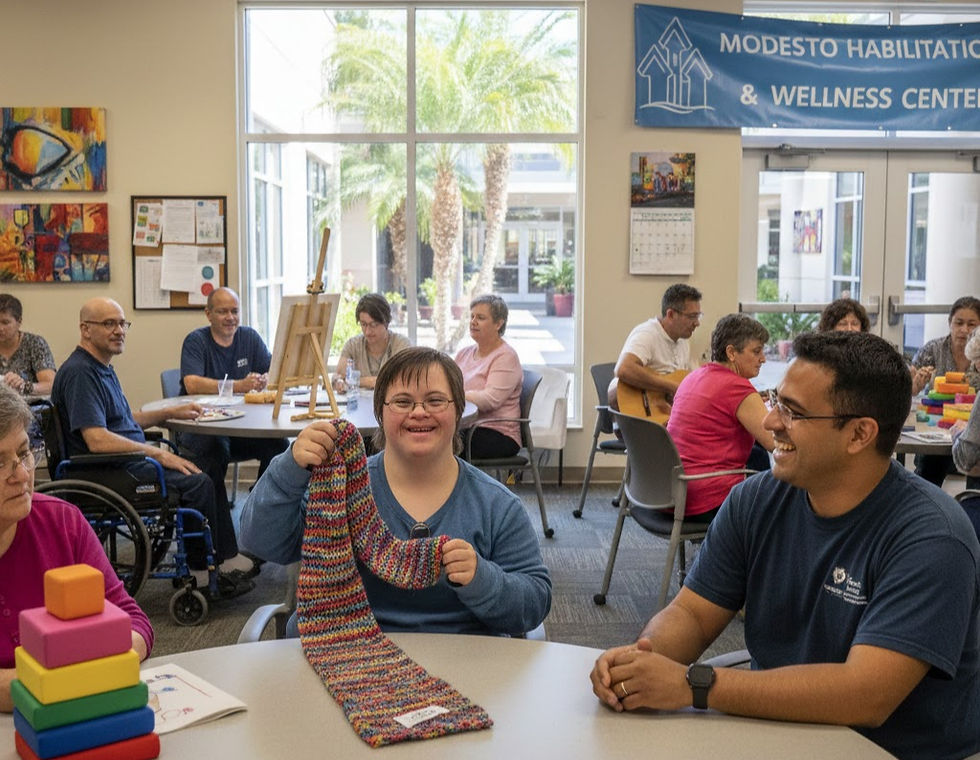Unlocking Potential: How Enhanced Care Management (ECM) Transforms Lives for Vulnerable Populations
- Nov 7, 2025
- 4 min read
FREE EXTRA HELP: Pair Team works with Help is Hope Foundation for Independent Living to help you get the care and support you need — all in one place. Our local care team can help connect you to medical care, mental health support, housing, food, and other important
resources.

Supporting Those Who:
-Experiencing homelessness or needing help finding housing
-Dealing with mental health challenges
-Struggling with drug or alcohol use
-Moving into or out of a nursing home or long-term care
-Youth who may be at risk or need extra support
-Returning to the community after being in jail or prison
-Having a hard time getting food or paying for basic needs
Enhanced Care Management (ECM) offers more than traditional medical care under Medi-Cal. It connects eligible individuals with a personal Care Manager who helps coordinate a wide range of services. These services go beyond doctor visits to include support with housing, food, employment, recovery, and building a stable life. This holistic approach addresses the complex needs of vulnerable populations, helping them overcome barriers and improve their overall well-being.
What Enhanced Care Management Provides
ECM is designed to meet people where they are, offering personalized support tailored to their unique situations. A Care Manager acts as a guide and advocate, helping individuals navigate healthcare, social services, and community resources. This includes:
Coordinating medical appointments and treatments
Assisting with housing applications and finding stable living arrangements
Connecting to food assistance programs
Supporting job training and employment opportunities
Offering help with substance use recovery and mental health services
Building life skills for long-term stability
This comprehensive support helps individuals avoid emergency room visits, reduce hospital stays, and improve their quality of life.
Who Qualifies for Enhanced Care Management
Eligibility for ECM is based on specific categories that identify individuals facing significant challenges. Understanding these categories helps clarify who can benefit from this program.
1. Experiencing Homelessness or At Risk
Homelessness includes more than living on the street. It covers situations such as:
Sleeping in a car, truck, or RV for extended periods
Couch surfing with friends or family without a permanent home
Staying in emergency shelters, transitional housing, or recovery homes
Living in motels or hotels paid for by others due to lack of housing
Sleeping outdoors in parks, tents, or abandoned buildings
Recently released from jail or hospital with no place to go
Living doubled up without a lease and at risk of eviction
People in these situations often face barriers to healthcare and social services, making ECM support critical.
2. Frequent Emergency Department Use
High use of emergency services signals unmet health needs. ECM targets individuals who have:
Visited the emergency room five or more times in the past six months (adults)
Experienced three or more unplanned hospital stays in six months
Had multiple short-term nursing home stays
By coordinating care and addressing underlying issues, ECM helps reduce unnecessary emergency visits.
3. Severe Mental Illness
Individuals with serious mental health conditions often struggle with daily functioning. ECM supports those who have:
Diagnoses such as schizophrenia, bipolar disorder, or major depression that impair daily life
Used crisis services, emergency rooms, or hospitals as primary care sources
History of suicide attempts or serious self-harm
Difficulty working or socializing due to mental health symptoms
Recent arrests related to mental health issues
Care Managers connect these individuals to ongoing mental health treatment and community resources.
4. Substance Use Disorder
Active addiction to drugs or alcohol creates complex health and social challenges. ECM helps people struggling with substance use by:
Providing access to treatment programs and recovery support
Coordinating medical care related to addiction
Assisting with housing and employment to support sobriety
Offering ongoing encouragement and relapse prevention
This support improves chances of long-term recovery and stability.
How ECM Makes a Difference
The strength of Enhanced Care Management lies in its personalized, hands-on approach. Care Managers build trusting relationships and work closely with clients to identify goals and barriers. Some examples of ECM in action include:
Helping a person recently released from jail find stable housing and connect to mental health services, reducing repeat hospital visits
Assisting a homeless individual with substance use disorder to enter a recovery program and secure a job, improving their independence
Coordinating care for someone with severe depression who frequently uses emergency services, linking them to therapy and community support
These stories show how ECM can unlock potential by addressing the whole person, not just medical symptoms.
What to Expect When You Qualify
Once enrolled in ECM, you will be assigned a Care Manager who will:
Conduct a thorough assessment of your needs
Develop a personalized care plan with you
Coordinate appointments, services, and benefits
Provide ongoing support and advocacy
Help you build skills for long-term success
This partnership focuses on your strengths and goals, offering practical help every step of the way.
Taking the Next Step
If you or someone you know fits one of the qualifying categories, reaching out to your Medi-Cal provider or local health department is a good start. They can guide you through the application process and connect you with ECM services.
Enhanced Care Management offers a path to stability and improved health by addressing the full range of challenges faced by vulnerable populations. With the right support, individuals can build stronger, healthier lives.











Comments